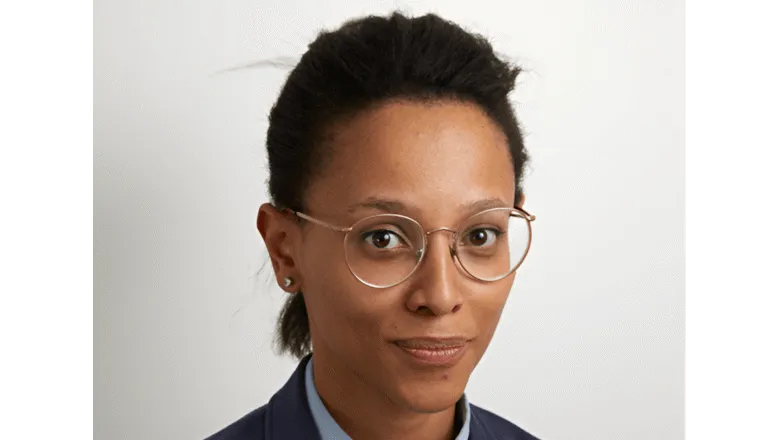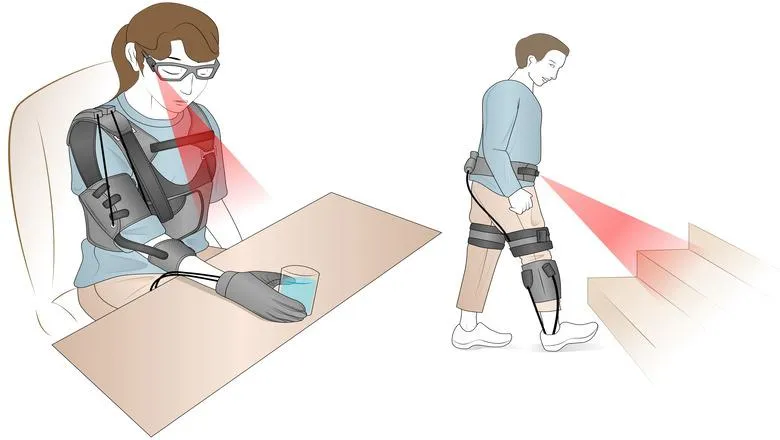Wearable robotics can transform the lives of people with limb difference, but it is not only a technological challenge but a social one too... by integrating these technologies into the toolkit of medical professionals we can make them a more mainstream element of the medical landscape."
Dr Letizia Gionfrida
13 September 2024
King's computer scientist awarded fellowship from Royal Academy of Engineering
Dr Letizia Gionfrida will help build the next generation of wearable robotics amongst a community of eminent peers.

Dr Letizia Gionfrida, Lecturer in Computer Vision at the Department of Informatics, has been awarded a fellowship of the Royal Academy of Engineering.
Established in 1976, the Royal Academy of Engineering is a community of almost 1,700 engineers that offers independent guidance to policymakers worldwide and funds cutting-edge research to create a sustainable and equitable society.
Dr Gionfrida’s fellowship will support her work developing next-generation robotic hand prosthetics that use computer vision to help those who have lost limbs handle the tasks of everyday life more effectively than ever before.
The World Health Organisation estimates that wearable robotics such as prostheses could soon help the one billion people who live with disabilities live life without impairment, including the 10 million stroke survivors worldwide who have trouble moving their hands.
However, current generation hand prosthetics offer limited fine motor control, falling far short of the dexterity of human hands. This has led many to abandon their prosthetics.
Using cameras to capture visual data in a way that mimics how humans pick up and process information by looking around an environment, the work hopes to simulate a user’s intent to inform how robotic hand prosthetics move.
Information like the shape of an object or the incline of a floor can impact how a somebody interacts with their environment. For example, when reaching out to grab something, the motion of an individual’s hand will change depending on whether they see apples or oranges in front of them.
Similarly, a hand prosthetic needs to know what the user intends to grasp so it can perform specific tasks, like adapting grasp type and finger span to get a strong grip, so to relax so it doesn’t crush something breakable.
By using computer vision to paint a more complete picture of the environment, such as when a using is holding a delicate teacup, the technology promises to empower wearable robots to complete the types of complex tasks likely to be part of everyday life.

Those with limb difference are also a broad category, and someone with an amputation at the wrist may use a prosthetic very differently to someone with at amputation at the shoulder, and therefore have different types of intent.
By gathering data from a wide range of users on how they intend to use a prototype vision enabled prosthetic device, Letizia and her team hope to create an adaptable AI controller that will be able to fine tune the behaviour of the robot. This will alter behaviour not just based on the environment the user finds themselves in, but the individual preferences of the user, encouraging them to continue using the prosthetic and cutting down the level of rejection for assistive devices – which can be as high as 44%.
Dr Gionfrida said of what she hopes her project will accomplish and the fellowship, “Wearable robotics can transform the lives of people with limb difference, but it is not only a technological challenge but a social one too.
This is the first time this research fellowship has been won by the department and the faculty, which is a testament to both Letizia herself and the Department of Informatics which is continuously evolving to support cutting edge research making a difference in the world today. Congratulations Letizia!”
Professor Carmine Ventre
Social stigma plays a big role in why these devices haven’t succeeded on the market yet, and while we are not going to solve that overnight, by integrating these technologies into the toolkit of medical professionals we can make them a more mainstream element of the medical landscape. Efforts like these need the support of institutions like the Royal Academy of Engineering, and that it is why it is such a pleasure to be elected a fellow and to continue this work.”
Professor Carmine Ventre, Interim Head of the Department of Informatics said of the fellowship, “It is a fantastic achievement for an academic colleague to be awarded a Royal Academy of Engineering Research Fellowship, especially for work that promises to revolutionise the way some individuals experience life as a whole.
“This is the first time this research fellowship has been won by the department and the faculty, which is a testament to both Letizia herself and the Department of Informatics which is continuously evolving to support cutting edge research making a difference in the world today. Congratulations Letizia!”

